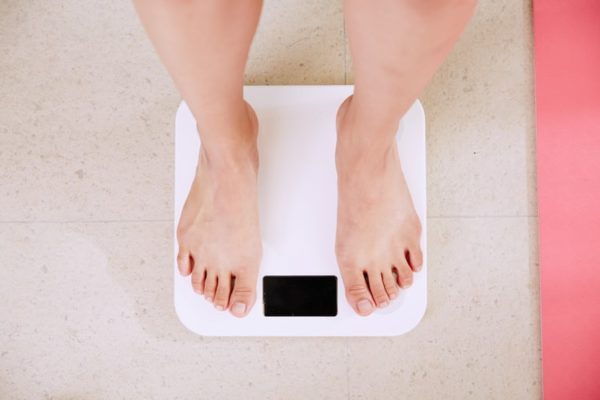We all know that nursing is both a challenging and rewarding career. Working in a 12-hour hospital shift is an inevitable part of the “challenging” category.
Though nurses have been used to this kind of set-up, sleep deprivation and fatigue (1) could be detrimental both for the nurse’s health and also for her patients’ safety. There are surprisingly few studies describing how shift work is associated with diet and weight-related conditions.
Shift work has been associated with increased body mass index (BMI), waist circumference, blood pressure, and low-density lipoprotein. In other words, metabolic syndrome.
But according to a Lippincott’s Nursing Center journal, there are proven ways to keep nurses in their best shape despite the mandatory 12-hour shift that they have to withstand.
Here are the 10 tips for the 12-hour shift survival:
Achieve and maintain a healthy weight

If your BMI is over 27 with other health risks or over 30 with no comorbidities, a clinically significant weight loss of 7% to 10% of your baseline weight can be achieved by eating 250 to 500 fewer calories per day over 24 weeks.
If you’ve been gaining unwanted weight, keeping a food diary may help you manage your weight. Take note of what you eat in a day.
Follow a Mediterranean-style eating plan
Following the Mediterranean eating plan has been associated with a lower risk for heart disease (2), stroke, and diabetes. It can also contribute to weight management. You don’t have to study Mediterranean cuisine to follow the diet because this plan only emphasizes eating whole foods, particularly fruits, vegetables, whole grains, legumes, seeds, and nuts. Also, focus on choosing “good fats” and whole foods with high levels of dietary fiber.
Eat a high-protein breakfast
High-protein foods have been shown to improve satiety and retention of lean body mass. Eating breakfast has also been linked to a reduced urge to consume calorie-dense foods, improved attention span, and increased energy for physical activity.
Pack a “survival” lunch bag with a protein source (skim milk, turkey, low-fat deli meats, hard-boiled eggs, low-fat yogurt, low-fat cottage cheese), a fruit and/or vegetable, and whole-grain food items (high-fiber cereal, oatmeal, whole grain crackers, whole grain bread or cereal) to avoid the fast-food drive-thru.
Make sure you’re getting enough vitamin D
Vitamin D deficiency, defined as 25-hydroxy vitamin D levels under 20 ng/mL, may contribute to fatigue. Experts suggest serum levels of at least 32 ng/mL vitamin D.
This level can help you achieve optimal calcium absorption, improved bone density, and fewer falls. It can also help reduce the risk of some cancers, diabetes, osteoporosis, metabolic syndrome, and obesity.
Good food sources of vitamin D include cod liver oil, salmon, mackerel, tuna and sardines canned in oil, fortified orange juice, and fortified dairy products.
Get enough sleep
Sleep deprivation is a common consequence of the 12-hour shift. Long-term sleep loss has been associated with obesity and diabetes (3). The exact mechanisms are unknown, but it’s thought that sleep modulates hormone secretions. It may impact glucose utilization, insulin sensitivity, appetite regulation, and resting energy expenditure.
Sleep may also impact circulating leptin, ghrelin, thyroid-stimulating hormone, and cortisol levels. Most adults require at least 6.5 hours but not more than 9 hours of sleep per day to avoid carbohydrate craving, stimulated overeating, and/or increased appetite.
If it isn’t possible to acquire the needed hours of sleep, focus on choosing foods with high dietary fiber and lower carbohydrate content.
See Also: Best Sleep Aids For Night Shift Workers
Count your steps
If shift work prevents adherence to a regular exercise program, try to include activity in your workday.
An appropriate goal for weight maintenance is 10,000 steps (about 5 miles) per day. A goal for heart health would be 3,000 steps in 30 minutes at least 5 days a week.
These steps can be done in bouts of 10 minutes. If you don’t meet your goal during your shifts, plan to catch up on a day off.
See Also: 13 Best HIIT Workouts For Weight Loss (From Pinterest)
Don’t skip meals
Keep a supply of prepackaged meal replacements in your break room. Even if you can’t take a real lunch break, at least you’ll have something good to fall back on.
Advocate for appropriate meal breaks
Work together to create a culture that gives staff the opportunity to take meal breaks without feeling they’re abandoning their patients. This requires mutual support and planning.
Stay hydrated
If you don’t drink sufficient fluids, you may experience signs and symptoms of dehydration, including lightheadedness, dizziness, or nausea. The body needs fluid in the form of water or beverages such as juice, milk, tea as well as some fluid from food.
Contrary to widespread belief, caffeinated beverages contribute to daily fluid needs and aren’t dehydrating- with one exception. Caffeine is dehydrating for a person who doesn’t consume caffeine routinely.
Consider chewing gum
Chewing sugar-free gum (away from patient-care areas) can be a replacement for snacks such as candy while contributing only 10 to 15 cal. Recent studies demonstrate that gum chewing can increase alertness (4), concentration, and oral health while decreasing stress and tension.
Nurses are angels of care but as humans, we also need to take care of ourselves and replenish the strength that we have for our job. Remember, nurses are not robots or superhumans so take good care of yourself and get ready for another bloody 12-hour shift. Good luck!
References:
1. Rogers, A. E. (2008). The effects of fatigue and sleepiness on nurse performance and patient safety. In Patient safety and quality: An evidence-based handbook for nurses. Agency for Healthcare Research and Quality (US).
2. Dontas, A. S., Zerefos, N. S., Panagiotakos, D. B., & Valis, D. A. (2007). Mediterranean diet and prevention of coronary heart disease in the elderly. Clinical interventions in aging, 2(1), 109.
3. Knutson, K. L., & Van Cauter, E. (2008). Associations between sleep loss and increased risk of obesity and diabetes. Annals of the New York Academy of Sciences, 1129, 287.
4. Allen, A. P., & Smith, A. P. (2015). Chewing gum: cognitive performance, mood, well-being, and associated physiology. BioMed research international, 2015.




















Comments are closed.